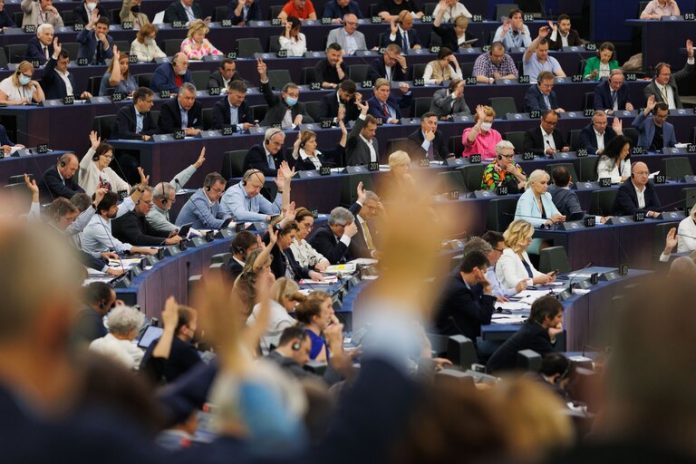Budget MEPs support the proposed targeted revision of the Multiannual Financial Framework, but demand modifications to better reflect carbon price increase.
In a vote on Wednesday, Members of the Committee on Budgets have approved the draft interim report on the Commission’s proposal for a revision of the Multiannual Financial Framework (MFF) 2021-2027 with 29 against 3 votes and 5 abstentions.
This draft interim report aims to translate Parliament’s stance on relevant aspects of the Fit for 55 package into a position with respect to this proposed revision of the MFF from December 2021.
“Decisions linked to Fit-for-55 package require budgetary adjustments, therefore the European Parliament, taking care of the coherence of the entire budgetary system, takes measures to guarantee the necessary financial resources dedicated to new challenges within the framework of the Green Deal,” said Co-rapporteur Jan Olbrycht (EPP, PL).
“This vote is not just to approve a technical revision of the Multiannual Financial Framework for 2021-2027. It is essentially to enable the funding of the new Social Climate Fund through the EU’s long term budget, without undermining the funding of other European policies and programs, namely the Cohesion Policy. The Social Climate Fund is essential to tackle energy and mobility poverty, supporting with concrete measures the most vulnerable families, micro enterprises and transport users,” said Co-rapporteur Margarida Marques (S&D, PT).
Make sure the transition towards greener energy leaves no-one behind
MEPs demand that in the event of an increase in the carbon price to a level higher than the initial assumption in the proposal, an additional allocation should be made available for the Social Climate Fund on an annual basis to reflect the rate of increase, in order to further support vulnerable households and transport users in the transition towards climate neutrality.
Implementing the next generation of EU sources of revenue
The proposal introduces of an automatic adjustment of the MFF ceilings based on new “own resources” which would allow for the repayment of NextGenerationEU borrowing, in line with the Commission’s commitment in the roadmap agreed with Parliament and Council in December 2020. Among these new income sources are a share of the revenues under the Emission Trading System (ETS) and from the Carbon Border Adjustment Mechanism, so this is also a vital step to ensure that the EU’s revenue is placed on a sustainable footing.
A necessary broader revision of the current Multiannual Financial Framework
To ensure the EU budget can meet the fast evolving needs, MEPs also insist that a “broader revision of the current MFF is needed as it was already pushed to its limits in its first year”, pointing to the multiple crises and challenges that the EU has been addressing, in particular the war in Ukraine. The Commission should table such a legislative proposal “as soon as possible and no later than the first quarter of 2023”. In this context, work has already started in the Committee on Budgets on a resolution with the title “Upscaling the 2021-2027 Multiannual Financial Framework: a resilient EU budget fit for new challenges”.
The vote in plenary is scheduled for 14 September.

